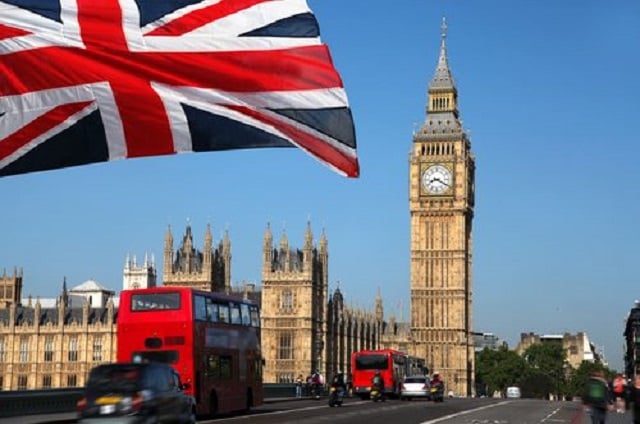Pakistan's judicial failure to fulfil international obligations is one of the major reasons behind the increase in international litigation against the country. Currently, the country is facing three kinds of disputes, which treaty-based disputes, contractual and commercial disputes and national security matters. Cases such as Reko Diq, Karkey, IPPs disputes and Iran-Pak Gas pipeline have economic implications as well as matters like Indus Water Treaty Dispute, Kulbhushan Jadhav, Hyderabad funds and Samjhota train bombing.
Explaining the reasons behind this growth, former Attorney General for Pakistan (AGP) Anwar Mansoor Khan, during his briefing to the federal cabinet in May 2019, cited verdicts by Pakistan’s judiciary to demonstrate their failure to fulfil obligations or reach dispute-mitigating decisions and poorly negotiate contracts.
Advocate Asad Raheem, who has worked as a consultant for the AGP office in the past, believes that the reasons for Pakistan’s failure in international arbitrations are four-fold: signing off on extraordinarily generous bilateral investment treaties that have maximised risk but failed to encourage investment, accepting the jurisdiction of neoliberal investment forums such as International Centre for Settlement of Investment Disputes (ICSID) without consideration or limiting the state’s exposure, inking disastrous power policies that entirely favoured IPPs in 1994 and 2002, which have since wreaked havoc on circular debt, and after having bound oneself to such irresponsible obligations, have also failed to fulfil them like a responsible contracting party. PHOTO: FILE
PHOTO: FILE
"It also requires mentioning that the superior courts must tread gently when it comes to economic affairs, as they did under Justice Jillani,” says Raheem. “Justice Chaudhry’s decision in Abdul Haque vs. Government of Balochistan was a terrible misstep, which culminated in ICSID’s equally ridiculous award of $4.96 billion against Pakistan," he adds.
Senior lawyers also blame the Foreign Office for its failure to timely advice in international legal disputes because it is a matter of fact that there is no international law expert in the Foreign Office.
International litigation against Pakistan has significantly increased in the last five years. Where previously there were six cases against Pakistan, there have now risen to approximately 50 cases in the last five years.
Currently, Pakistan is literally paying a high price for this international litigation against it. The country has paid $100 million to foreign lawyers during Pakistan Muslim League-Nawaz’s (PML-N) tenure. Similarly, more than $10 million has been spent for this purpose by the by Pakistan Tehreek-e-Insaf (PTI) government.
International Centre for Settlement of Investment Disputes (ICSID) on July 12, 2019 awarded massive $5.976 billion award against Pakistan in the Reko Diq case, which is one of biggest in ICSID history.
Tethyan Copper Company’s (TCC) management, the complainant whose contract was terminated, had claimed $11.43 billion in damages. In 2012, TCC filed claims for international arbitration before the ICSID of the World Bank after the Balochistan government turned down a leasing request from the company. The litigation has continued for seven years. Former Chief Justice of Pakistan Iftikhar Muhammad Chaudhry’s verdict in the Reko Diq case was the first in a series of events that led to the massive award.
After the case was filed, Pakistan lost its first jurisdictional challenge, when the international tribunal said that it has the jurisdiction to adjudicate the Reko Diq matter. After that, the tribunal declared that there was no wrongdoing in the agreement – the grounds on which the Supreme Court of Pakistan terminated the deal in 2013 – and eventually, the tribunal decided that Pakistan is liable to pay the damages. In July 2019, the final award was announced against Pakistan.
In December last year, the country faced another setback on the international legal front as the British Virgin Islands High Court passed an order to attach two PIA hotels in an enforcement proceedings--Roosevelt Hotel in Manhattan, New York, and Scribe Hotel in Central Paris. According to the injunction, PIA cannot sell any of these hotels due to Pakistan’s failure to provide a bank’s guarantee to an international arbitrator in the Reko Diq case.
The Roosevelt Hotel in New York. PHOTO: FILE
Three different international firms were hired to plead the case before the ICSID. Cherie Blair, the wife of former UK prime minister Tony Blair, was leading Pakistan’s first legal team. Renowned lawyer Ahmar Bilal Sufi was assigned the task of hiring the team.
During the tenure of the PML-N’s government, the then AGP Salman Aslam Butt had hired an international firm, Alen and Avery. However, Alen and Avery was unable to find evidence of corruption in the contract between Pakistan and the TCC. Later, ex-AGP Ashtar Ausaf Ali engaged an American firm, GST, in the quantum stage.
Now enforcement proceedings on the award are under way in different countries. It is has also been learnt that the Pakistani authorities are also working for an out of court settlement with the complainant company, TCC.
In November 2018, the London Court of International Arbitration (LCIA) awarded a penalty of $17 million to the anti-corruption watchdog, National Accountability Bureau (NAB). Later, a $3 million case cost was added to the award. In March 2019, the LCIA awarded $20 million as a final award.
However, NAB did not pay that amount and due to the interest rate, the award amount reached $28.7 million by December, 2020. Earlier, the NAB officials had wrongly paid $5 million in the past. Now the country suffered around $14 million additional loss due to NAB’s negligence. This exemplifies the country’s authorities continuous to protect the country's assets.
Last month, the federal government formed one-man commission comprising the former Apex Court Judge Azmat Saeed Sheikh to probe Broadsheet scam. The commission has been asked to complete its task within 45 days.

The Broadsheet Commission will also probe the incidents and cases relating to recovery efforts and legal proceedings pursued by the government of Pakistan since the year 1990 in foreign jurisdictions for recovery of unlawfully removed money or illegally acquired assets, that “were closed, abandoned and/or withdrawn without any valid reason or justification resulting in colossal losses to the country?”
The one-man commission will identify and fix responsibility of any person, body or authority etc, which was found guilty of gross negligence or misconduct or acted with mala fide motive or objective in respect of these matters.
In October 2019, Pakistan lost another legal battle on the international front as the UK high Court has ruled against Pakistan in the decades-old Hyderabad Fund case.
The UK court has ruled in favour of the heirs of the Nizam of Hyderabad and India, stating that "there is no illegality alleged that is sufficient to cause this Court to prevent the Princes -- specifically, India -- from asserting her claim to the Fund."
The high court dismissed Pakistan's claim to a sum of £35 million fund held by the UK National Westminster Bank in an account held in the name of Pakistan's former high commissioner, Habib Rahimtoola since September 1948.
The proceedings were started in 2013 when the then Pakistani High Commission Wajid Shamsul Hassan had waived Pakistan's immunity and filed claim.
The High Commission had gone against the Foreign Office that was not in favour of waiving the immunity in the matter. So, for the first time in legal proceedings, Pakistan claimed of a beneficial interest in the fund.
The princes of Nizam and India disputed Pakistan's claim to be absolutely entitled to the fund. They contended that there was no absolute transfer to Pakistan but that Nizam VII retained the beneficial interest in the fund and that a trust arose.
The princes and India also said that the transfer was to Rahimtoola in his personal capacity and that Pakistan had no interest – not even a legal interest – in the fund.
In short, the princes and India asserted that the fund was held on trust by Rahimtoola in his personal capacity alternatively in his capacity as the Pakistani high commissioner.
On the other hand, Pakistan's leading lawyer Khawar Qureshi failed in establishing his point that the Nizam had transferred the money in the purchase of weapons in order to resist India's attempts to forcibly annex Hyderabad.
"I do not consider that the transfer had anything to do with the purchase of weapons or the compensation of Pakistan (in any way) for the purchase of weapons,” says the judgment authored by Justice Marcus Smith. "The purpose of the transfer was, as I have found it, entirely different. For these reasons, I reject the Arms for Money Argument," says the judgment authored by Justice Marcus Smith.
In July 2019, the International Court of Justice (ICJ) has allowed India's request to give consular access to Indian spy Kulbhushan Jadhav, who self-confessed to fomenting terrorism and engaging in espionage within Pakistan.
However, the ICJ did not accept India's plea to set aside military court's decision wherein he was awarded a death sentence. The ICJ also asked Pakistan for an 'effective review' in Kulbhushan Jadhav case. In view of that direction, Pakistan promulgated ordinance and moved the Islamabad High Court for reconsideration of the military court conviction awarded to him. The matter still remains pending.
In November 2019, the PTI-led government achieved massive success when it resolved the $1.2 billion award against the country in the Karkey case, announced by the International Centre for Settlement of Investment Disputes (ICSID) in August 2017.
The statement was made by Prime Minister Imran Khan on social media at that time wherein it was stated that the PTI government with the help of Turkish President Recep Tayyip Erdogan had amicably resolved the Karkey dispute and saved Pakistan's $1.2 billion penalty imposed by ICSID.
The AGP office and senior officials of top Intelligence agency played a key role in the settlement. This litigation was also started against Pakistan due to the Supreme Court proceedings in the Rental Powers Project case.
In 2012, the Supreme Court took suo motu action against rental power projects, declaring illegal all such agreements signed under the Rental Power Policy 2008.
The apex court also directed NAB to initiate investigation into the projects. The anti-corruption watchdog started probe and prevented the power-producing ship of the Turkish company from leaving Pakistan.
In 2014, Pakistan had hired a global law firm Allen & Overy to which the country was obligated to pay £90,000 (Rs16.2 million) in addition to an hourly rate during hearings.
Earlier, Pakistan had paid £200,000 (Rs36 million) to the London-based firm but the government officials, including senior legal experts, felt the firm was not properly contesting the case at the ICSID. Total fee agreed with the law firm was £1.4 million (Rs252.3) in addition to hourly charges.
13 cases won last six years
Former AG Mansoor Khan had told the federal cabinet that despite facing liabilities of billions of rupees by international tribunals, Pakistan’s overall performance to contest cases at international forums is very satisfactory as out of 16 cases, the country was successful in 13 cases in the last six years.
A £77 million GBP claim against Pakistan was dismissed in Progas. Likewise, $42 million recovered in Ali Alawi case. Similarly, a claim was dismissed in matters related to Minhaj Khokhar and Orient.
In Daewoo vs NHA, a counterclaim worth $532 million was awarded while all costs awarded to PSO in FAL oil. Millions of dollars worth of costs were also recovered in Agility international.
In May, the appellate body, the supreme dispute settlement wing of World Trade Organisation (WTO) declared European Union (EU) countervailing duties (CVDs) not consistent with its SCM agreement. The EU appealed but it was turned down by the appellate body — which upheld the initial decision in favour of Pakistan.
The WTO also ruled against EU countervailing duties imposed on import polyethylene terephthalate (PET) from Pakistan. The EU had imposed crippling trade defence duties on the import of polyethylene terephthalate (PET) from Pakistan, in June 2009.
Pakistan also successfully won two cases against South Africa wherein anti-dumping duty was lifted and removed. Likewise, dispute with the United States, matter related to the export promotional schemes have been successfully defended.
Pakistan also recovered $99.052 million and transferred it in the matter related to the encashment of bank guarantees from Turkish banks.
In the matter between Daewoo and National Highway Authority (NHA), s counterclaim worth $ 532 million has also been awarded.
